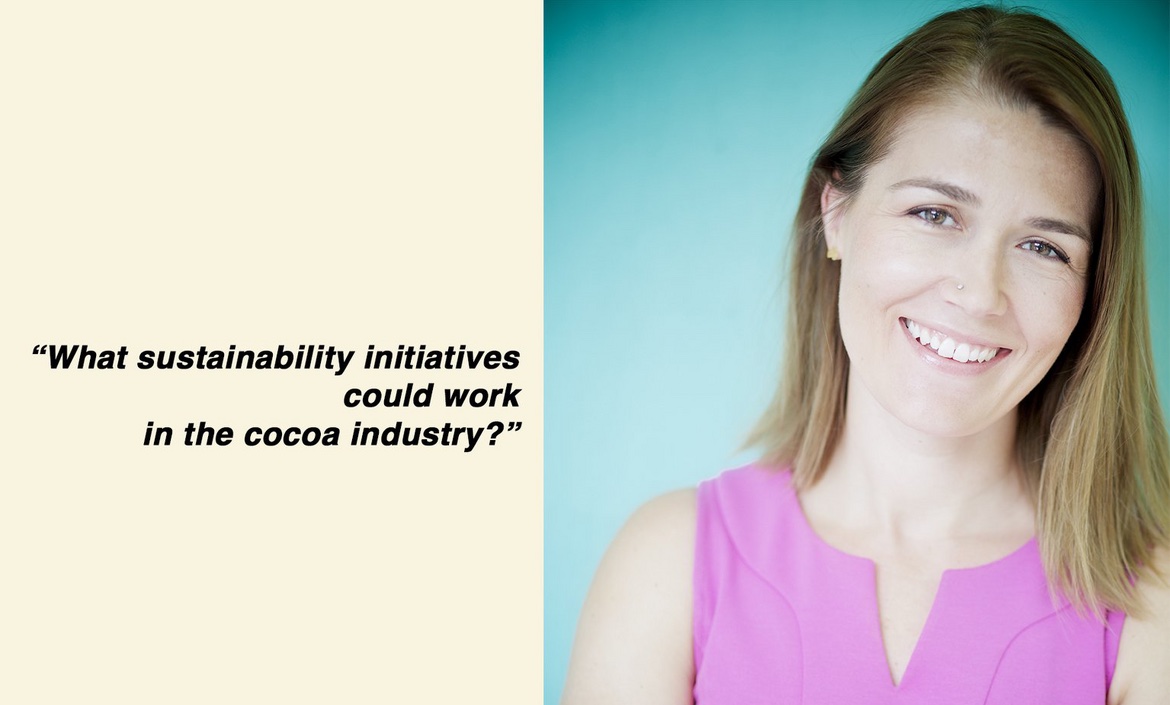Avoiding child labour, slavery or deforestation in any production process seems like a no-brainer in any industry. But as global supply chains get more fractured and unmonitored, this dogma becomes increasingly challenging to put into practice. In her recent TedXErasmusUniversity talk on 20 October, Joke Aerts, Open Chain Lead at Tony’s Chocolonely discussed how the company build a fast-growing business around a fairer chocolate supply chain. The event was organised and hosted by RSM's Full-time MBA'21 students.
The crux of the company’s solution, she says, lies in applying and creating empathy throughout the entire value chain, starting with local cocoa farmers: “Worldwide there are 2,5 million cocoa farmers, often with very small plots of just a couple of acres. It would be impossible for us to monitor and ensure fair labour conditions on all of these individual farms. We reached out to farming cooperatives and asked them to become equal busines partners.”
Commodity market
One of the first problems that needed solving before cocoa production could be monitored, is knowing where these farms actually are: “We have commissioned the cooperatives to map farms in their area for us and report back on labour conditions on the farms. This helps us to avoid buying ‘anonymous’ cocoa beans, which really is the root of the problem in a commodity market.
Importantly, the cooperatives will own the data they collect she says: “We want them to succeed even if they decide to start selling to others.”
[text continues under photo]

Tony's Open Chain
That philosophy goes to the heart of ‘Tony’s Open Chain’ -a project that Aerts leads- which aims to spread the core values of a slave-free and honest chocolate production throughout the industry: “We want ourselves -and others- to no longer compete on child and slave labour. Instead, we ask every producer to collaborate on cocoa, and then compete with us on the quality and the taste of chocolate. We literally ask others to copy our approach and become mission allies.”
With success: Albert Heijn, the largest supermarket chain in the Netherlands has already agreed to work according to the core values of ‘Tony’s Open Chain’ for their own chocolate line. Aerts expects others to follow suit.
MBA: know the supply chain
Her advice to MBA students: “When you are faced with the world’s biggest problems such as poverty, slavery and inequality, never stop believing that even these challenges can be overcome. But you have to be prepared to get ankle-deep, intimate knowledge of every step in your supply chain. I believe you shouldn’t sell chocolate if you have never seen first-hand what happens on a farm or in a chocolate factory.”
Talk to one of our admissions managers

Sharlene Bell
Recruitment & Admissions Manager EU, Africa & Middle East

Carrie Fok
Recruitment & Admissions Manager Asia & Oceania

Aki Voudigaris
Recruitment & Admissions Manager Americas